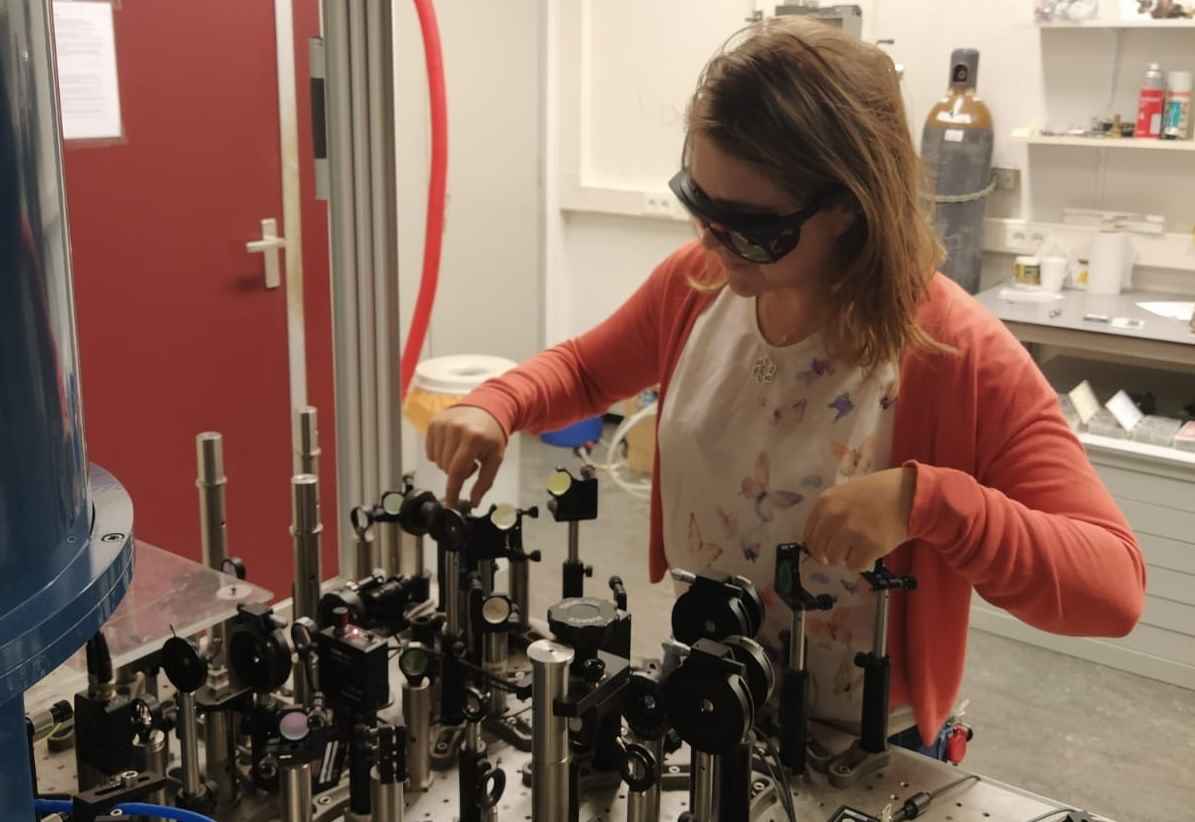Professor Caspar van der Wal receives grant within National Growth Fund program Quantum Technology
Professor Caspar van der Wal of the Zernike Institute receives a grant within the National Growth Fund program Quantum Technology, which the Dutch Research Council (NWO) has organized in collaboration with Quantum Delta NL. Van der Wal receives the grant for his project 'Telecom quantum marriage with metal atoms in semiconductors'. The grant comprises an amount of EUR 350,000.
Quantum technology is a key technology that can provide answers to many unsolved societal challenges.

Metal atoms in semiconductors go quantum-telecom
Quantum technology can make the internet more secure and provide better sensors. Much is still unknown about which materials are most suited for building such technology. The project of Van der Wal builds on the recent discovery that adding individual metal atoms to a widely-used semiconductor material can improve quantum technology. The improvement is that the colour of light that runs in the fibre-optics of the internet can directly control a quantum memory or quantum sensor. Van der Wal aims to better understand which metal atoms are most suitable for this, and how they can be controlled inside a semiconductor device.
Quantum Delta NL
In 2019, Quantum Delta NL has been established to implement the National Agenda Quantum Technology. In 2021, Quantum Delta NL proposal received full honours from the National Growth Fund. The Dutch central government is putting EUR 615 million into this pioneering technology. Of this, within the Quantum Technology programme, a total of EUR 42 million has been set aside for scientific research and innovation, over a duration of seven years.

| Last modified: | 20 December 2022 1.44 p.m. |
More news
-
03 April 2025
IMChip and MimeCure in top 10 of the national Academic Startup Competition
Prof. Tamalika Banerjee’s startup IMChip and Prof. Erik Frijlink and Dr. Luke van der Koog’s startup MimeCure have made it into the top 10 of the national Academic Startup Competition.
-
01 April 2025
NSC’s electoral reform plan may have unwanted consequences
The new voting system, proposed by minister Uitermark, could jeopardize the fundamental principle of proportional representation, says Davide Grossi, Professor of Collective Decision Making and Computation at the University of Groningen
-
01 April 2025
'Diversity leads to better science'
In addition to her biological research on ageing, Hannah Dugdale also studies disparities relating to diversity in science. Thanks to the latter, she is one of the two 2024 laureates of the Athena Award, an NWO prize for successful and inspiring...
